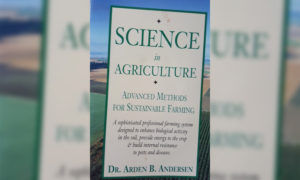Bermuda and tall fescue are both popular turf choices for golf courses around the world. Extensive research has proven the two species offer many benefits … from high wearability to increased shade and cold tolerance.
“Tall fescue is ideal for roughs since it tolerates shade and expresses acceptable traffic tolerance at a modest height of cut,” says Dr. Bill Meyer, director of plant science research center at Rutgers University.
Although not as resilient as Bermuda, tall fescue continues to be a popular choice for its year-round green in most climates, relative low maintenance and high shade tolerance.
The thought that turf-type tall fescue is a water-thirsty plant continues to be disproven when planting the right cultivars. Recently, several research reports were published in scientific journals verifying the color retention and drought tolerance of improved turf grasses, when denied irrigation or natural rainfall, include turf-type tall fescue along with other cool and warm season grasses.
“Turf-type tall fescue stays green with less water than other cool season grasses and tends to rebound with the next rain event or irrigation cycle. Breeding efforts have dramatically increased the aesthetics of tall fescue species and improved the drought tolerance to expand the regional zones of application,” says Kenneth Hignight, director of research at Turfgrass Water Conservation Alliance (TWCA) and NexGen Turf Research.
Bermuda is best suited for tees and fairways since it is quick to recover from divot damage and tolerates close mowing. In addition, Bermuda has a moderate salt tolerance, which is an important attribute since salt stress is one of the major factors contributing to poor plant growth. Findings show that Bermuda, along with seashore paspalum, can germinate and establish in up to 5,000 ppm salt concentration. Although not quite as tolerant of salt as seashore paspalum, Bermuda grass will tolerate up to 12,000 ppm salt concentrations.
“With adequate moisture, moderate fertilization and regular mowing, Bermuda grass forms a dense and durable turf,” says Dr. Modan Das, director of research at Seeds West, Inc. “Cold tolerant varieties of bermuda can be grown in transition zones, resulting in a wide adaptation in several climatic zones around the world,” he adds. Bermuda grass’ expanded adaptation could be the answer for superintendents in cooler climates who struggle with heavy wear and divots on their cool season tees and other heavy-use areas.
Through continued research, the misconception of Bermuda not thriving in shady areas is debunked with new varieties demonstrating acceptable coverage in nontraditional areas. The University of Georgia recently released a Bermuda grass with increased shade tolerance, and many others have promising results.
With Bermuda’s dominance on southern courses, professional turf managers are more familiar with necessary management regimes. Dr. Brian Schwartz, breeder at The University of Georgia says, “The long history of Bermuda use on golf courses offers numerous options of pesticides for use on this warm season species versus other warm season grasses found on golf courses.”
Turf-type tall fescue and Bermuda continue to be excellent and versatile choices for many golf courses, providing coverage solutions in unconventional environments.
For more information contact Pennington Seed at
(800)286-6100 • www.penningtonseed.com




















